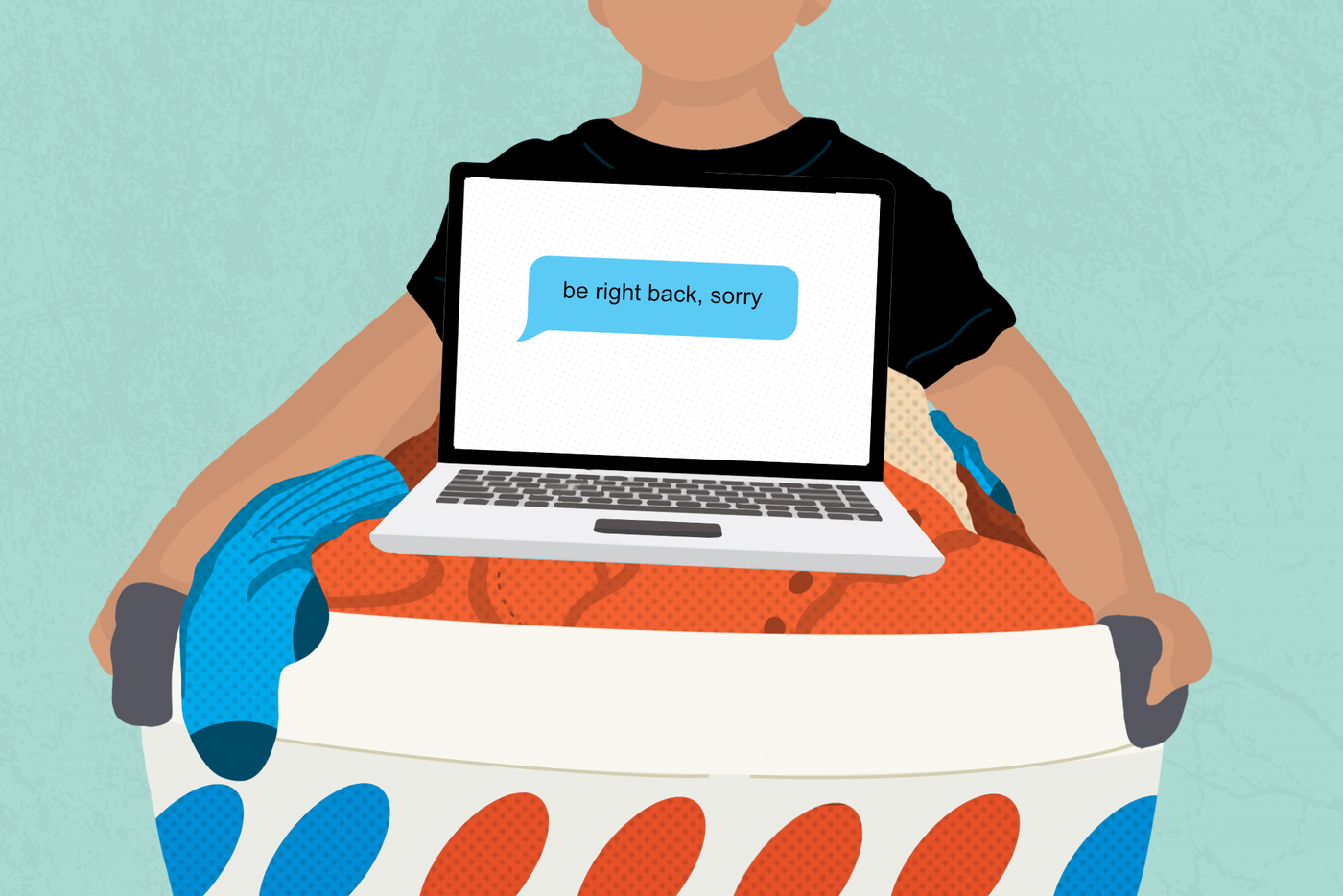This COVID wave burst my privilege bubble. From being the “work from home kid”, who woke up 1 minute before meetings and was served lunch on my work table, I had to adapt to waking up 2 hours before work to cook some breakfast, feed our pet, heat milk and keep the trash outside … and how I wish that was the end of the loooooong to-do list.
The day my mother tested positive, I knew I’d have to work and take care of her and my family, and with no one else to help, this had to be a learning experience for me. Well, let’s start with the fact that working from home AND working for home feel like two full time jobs, and very different ones.
Two-three days into juggling the two jobs, I couldn’t help but feel frustrated and isolated. There’s this feeling of constantly being rushed and pushed from one task into the other. I always told my mum to chill and rest, but today, if someone tells me to do the same I’d most probably throw a tantrum, because I constantly feel like time is running out. I feel it even as I write this blog!
There’s no time to rest, you’re constantly on your feet and your boundaries (even if you try to make them) are not given much importance. You're cooking while on virtual meetings, and drying clothes right after work. You are taking breaks from work to complete your home chores to be back to the work again. If not that, you’re always thinking of what to do next. It’s tough, and as much as I am whining about it, I also know I only have to do it for a week or two. And my mother does it everyday, she’s been doing it for years now. Some homemakers do it while also working professionally!
You might say it’s just them wanting to nurture, it’s what is expected of them, or their way of showing love (sometimes twisted with frustration and nagging), but it takes a lot more energy than any of us can imagine. It’s certainly not “just a societal or scientific construct” that they have to deal with. It gives them no reward except seeing you happy and comfortable, and it’s invisible to us most of the time. It’s more than a 9-5 and it’s definitely more than getting a paycheck at the end of the month. It’s not easy physically, and it’s not easy mentally. It’s like a job that they have to be on top of everyday… with almost no holidays!
Having been on both sides of the house dynamics, one where I told my mum to “chill”, and the others where I genuinely have no “chill”, here are a few ways to be better support systems to our homemakers:
If they ask for help: They might genuinely be tired (no really, they don’t even get the weekends off!) Ask them what they’d like help with and let them know if you will do it a few minutes later (stick to your words though!) If you cannot do it, let them know why. Ask them if there is any other task you can do later, or on other days.
If they get irritated: Ask them if something is upsetting them, let them know you’re there to help. Clean up after yourself at least till they feel better. A lot of the time, homemakers might feel things are getting out of their hands. They have deadlines everyday. To cook, clean, feed, sweep, and do certain things at certain times - our timetables might change, but they never end. Some days they might want to catch a break too!
If you don’t want to eat the food they made: It’s valid for them to feel bad and irritated. It takes a lot of time, effort, cutting, mixing, and vessels to clean to make those dishes. But if you want a change, that’s valid too. Let them know beforehand, or tell them that you’d eat what they’ve made later in the day. If you really don’t want to eat it, understand where their frustration or sadness might be coming from, and acknowledge their effort.
If you feel angry with all the nagging: Yup, it can be quite irritating. Let them know that you’re busy right now and give them a certain time you’ll do the chore. If it’s cleaning your room or eating the fruits they’ve kept on the dining table, start with small steps. Only clean your work desk today or get the bowl of fruits in your room. It’s good to see a start, right? They’d feel good about it too. Let them know you’d do the rest later.
If you think they’re tired: I can assure you they are, but instead of being like young, inexperienced me (sigh) and telling them to “just chill”, help them out. Fold clothes, hang clothes, stand by the gas as the milk boils or cut the vegetables. Take an initiative to share the load. This will also help them relax when it’s time for them to do that activity, so instead of having to fold clothes, they can take a quick nap instead. Mission accomplished!
If it gets too much for you to handle: If it feels like you’re constantly stuck in the middle of chores and your own work and it keeps coming in your way, communicate. Let them know it’s getting difficult but also acknowledge that it’s hard for them. Try making a list of activities and home chores, and try to see which one of them you can take charge of (even if it’s just evening tea or cleaning up the table after dinner)!
If you’re thinking that they never ask for help: Or they never allow you to do the chores at home, I know it might seem like a helpless situation sometimes, but do what you can - even if it’s just thanking them, or praising them on how well they’ve been doing. It counts.
challenges of being a stay-at-home parent challenges of being a stay-at-home parent







